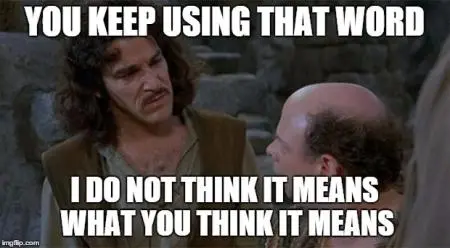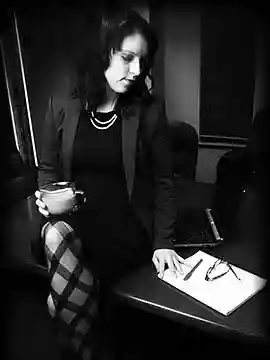Editors know there is an art to writing author queries. If you've reached the thrilling and terrifying point in your writing career where you work with a professional editor, then you know what I’m talking about. If you aren’t quite there yet, then boy oh boy, allow me to dangle an enticing carrot on a stick.
“Author query” can be a confusing term. We know how frustrating and delicate writing queries for agents and publishers can be, but this is a whole other circus: the query from the Other Side.
When editors refer to an “author query,” we mean the comments and questions written to the author within the manuscript. These queries address areas that need clarification, added detail, citation, reorganization, cutting, revision for consistency…the list goes on. And ON. Editorial Ass (short for editorial assistant, of course) is a great blog for learning a bit about author queries.
Good editors will not only flag issues, they will also suggest how to address them. If you’ve hired a professional editor, and a whole lot of the queries read something like "AU: Revise?" and nothing else, it’s time to fire your editor. If you’ve managed to hire or are paired with a talented and useful editor, you will get diplomatic and helpful responses rather than vague ones. I spend extra time making sure author queries are informative and concise, but at the same time, not curt. "AU: Revise?" can fuck off.
But writers, BEWARE! Even the sweetest and most encouraging editors have a dark side. It’s not that we hate our job. It’s not that we think you are a bad writer (unless we do). But editing can be a dry, tedious, thankless, mentally draining job. We read every single word carefully, and we do that for ten, one hundred, one thousand pages, all the time! There’s a whole passive aggressive undertone that goes along with many of your author queries. I love that I get to do what I do, but I often find myself rolling backwards in my little black chair and yelling, “What the fuck is this supposed to fucking mean?” at my screen. Just a typical Friday night. You know what query accompanies such a reaction? One like this: “Your intended meaning is not quite clear,” along with another line addressing the specific issue.
You want some more top-secret views into the mind of an overworked editor? I've commiserated with several other colleagues and have gathered an abundance of research. Here are twenty-three of my favorite queries and their subtle translations:
1. Do you mean: = Here’s what you actually mean:
2. Edited to avoid repeated words = Thesaurus.com is actually free. There are loads of free thesaurus sites! I'll just get you a thesaurus for your birthday.
3. This repeats earlier information and can be deleted = When you send me a signed, shiny copy of the finished book, it better be in a box with a bottle of wine. Maybe two bottles.
4. As per your requested style guide, place a comma before a conjunction when it connects two independent clauses = This is me providing a dry and boring technical query in order to assure you that I know what I'm doing. We just throw these in from time to time due to our own insecurities. We're human, too.
5. Edited for consistency = Do you know what a style sheet is? They're not just for editors, love.
6. Wording is a bit awkward here. Suggestion: = This sucks balls. Use my brilliant suggestion. Please graciously accept this fresh viewpoint from someone who isn’t too close to the material and hasn’t read the scene a million times. You’re welcome.
7. This section could be strengthened by more description = I know, I know. You don't want to interfere with the reader's imagination. Minimalism is a thing, but this is just laziness.
8. Is the intended audience familiar with this term? = Cut the pedantic jargon. We all know you’re God. But make it readable, k?
9. There appears to be missing or wrong words here. I’m not sure what the intended meaning is. Please check. = It’s true! An editor's job isn't just to point out errors but to suggest how to fix them. But…the fuck? I can’t even guess at what it is…so this, I leave this to you, my friend. I wash my hands.
10. This doesn't quite fit the tone. How about: = Your twenty-year-old hipster narrator sounds like my great aunt Beatrice here.
11. Is this phrasing intentional? = You are so EDGY, aren't you? You are the epitome of avant–garde. But I literally fell asleep trying to decipher the meaning of this sentence. I just want you to be aware.
12. Plagiarism? Please check. = I know it’s plagiarism. I’ve mastered the complex inner workings of the Google search engine. So has your intended audience. Found it in two clicks, buddy. If you want to be a writer, you’re going to have to actually write.
13. Consider deleting. Too many adverbs/adjectives can sometimes weaken a line rather than add to it. = This is a two-parter. First, “Consider” doing something almost always means: “For the love of all that is readable, you HAVE to listen to this suggestion.” Furthermore, “Consider deleting x, y, and z” almost always means: "This is wordy, babbling bullshit, and you need to slit these precious little darlings’ throats ASAP.
14. Consider deleting this line/paragraph/section/chapter. It doesn't do anything to drive the plot/idea forward. = Nobody gives a fuck. I know I don't give a fuck.
15. This metaphor does not quite work. Perhaps something like: = Comparing the scent of a woman's most intimate parts to a "flooded meadow of wildflowers" may throw readers. I know we're in a subjective business. To each their own and all that. But you've over-extended a creative muscle.
16. Quite = Fucking. As in, "Does not QUITE work."
17. Please clarify = How drunk were you when you were writing this? I would do a better job editing this if I were drunk. I wish I were drunk.
18. Incorrect word usage. Do you mean: =

19. Is this realistic? = To your credit, I guess it's a good thing that you don't seem to have ever killed someone and disposed of the body in real life. But believe you me, I know all about it (uh...because of reading about it). Time for you to research!
20. Show rather than tell = I know it hurts to hear. And I like to hurt...Just kidding! But really, no pain, no gain, so make an effort to incorporate this into your story in a more natural way that doesn't bore the shit out of everyone!
21. Please refer to comment number # = I can't. I can't keep typing the same thing over and over. Go take a class.
22. Weave the exposition into the dialogue. Avoid "info dump." = Refer to comment # 20.
23. Please confirm that I have not changed your intended meaning = I spent about twenty minutes trying to understand this one line. It’s a mess. The edits I’ve suggested here are fucking fantastic; they follow your style, and now people can understand this grammatically sound sentence. I can’t be sure this is anything close to what you meant, but let’s be real, I don’t think you know what you meant either. I haven’t showered in two days. Accept the change and let’s be done with it.
The list goes on. I think there is enough material for a full-length manuscript on this topic, but it's nice to let off a little steam. I hope you enjoyed this quick visit to the Other Side. All in good fun. In all sincerity, if every writer produced perfection the first time around, where would that leave a hungry and sadistic editor like myself?

About the author
Holly Slater is a freelance editor and writer. She slowly built her business at espressoeditor.com until that glorious day she was able to quit her regular job and venture into the world of full-time freelancing. She loves to tell you everything that’s wrong with your book, but she’s super-duper nice about it. Holly holds a B.A. in English and creative writing from Southern New Hampshire University and has been editing and writing for ten years. Her short story collection, Sweet Violent Femmes, is a display of bizarre erotic horror with a feminist bent. Holly lives in Cincinnati with her filmmaker fiancé and her talented theater-performing son.








